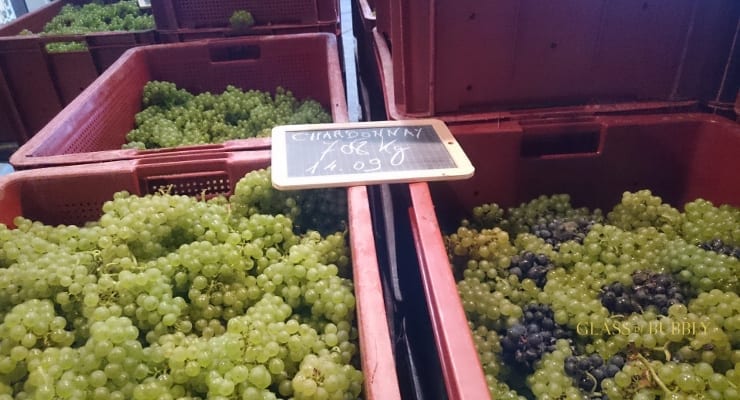5 Important Factors in Producing Good Champagne
8th September 2016

Champagne is a wonderful thing to study, from enjoying tasting the many varied labels and varieties to looking in to how it is made and the people behind producing some of the world’s finest labels. Not only is Champagne steeped in history, but the complex way that it is made means that it’s superior taste to many other sparkling wines means the industry holds many great wine making individuals and traditional ways in which it is made. Do not forget, there is not just one type of Champagne, we have of course brut, but also other variations to suit consumer tastes including Blanc de Blancs, Blanc de Noirs, demi-sec, rosé, vintage and more. Tastes vary from fruity to dry, from fine to rich, we also have organic and low calorie and so much more to explore that makes just the world of Champagne a subject which could take a lifetime to explore.
A lot of people ask me what I think is the most important contributing factor to Champagne making so I thought I would run through what I feel are five of the most important or certainly most commonly referred to within the industry:
Terroir (Land): Wines will taste different depending on where in the world they are produced and even within countries themselves, the different regions will produce very different tastes which is partly down to the terroir on which the grapes are grown. Many will know that Champagne is grown on mainly chalk style earth, when you visit the region you can see for yourself that the land is very chalky and you can pick up in your hands big lumps of chalk on the land the grapes are growing on – many will say this chalky earth is what makes Champagne the wine it is. Not only what the terrior is made of needs to be looked at, but how does the land lay, does it offer maximum opportunity to absorb the best of the sun rays, is it protected from cold winds etc.
Grape: Quite obvious really when you think of it as grapes are indeed the main ingredient of making Champagne or nearly every other kind of wine also.Where the grapes are grown are strictly controlled so that only certain regions in France can produce Champagne with the most popular types used being Chardonnay, Pinot Meunier and Pinot Noir. The quality of these grapes will be what defines the Champagne along with which and how much of each are used. We must also consider the age of the vine which of course will add to the overall quality of the grapes produced.
Viticulture: How are the vines being looked after? Does the winemaker adopt organic free methods of viticulture, are the vines and grapes looked after by hand or are modern day techniques used? There are some very well known and respected wine growers in the Champagne region and part of the quality of the wines they produce will be down to how well they look after their vines from such as defoliating to pruning.
How is the Champagne made: The vinification is what many may say is the most important part of where the quality of the wine will originate from, but most certainly will be very dependent on the three point above in order that the best grapes are available to work with. The Champagne making process will differ from wine house to wine house, but are always under strict supervision by the CIVC (Le Comité Interprofessionnel du vin de Champagne) which mean at least quality is at a certain level always in order to keep it’s highly regarded position within the industry and within the eye of the consumer. How the wines are pressed, the fermentation, mixing the grapes from different areas to include deciding if the wine is to be a vintage or not (grapes from the same year can only be used when naming a Champagne a ‘vintage’) and more will be all subject to variations, but will go to giving each Champagne it’s unique character and tastes.
Storage / Ageing: Many wines will taste very different depending on their age and this is the case for Champagne also. It is required of all Champagne makers to age their wines for a minimum of 18 months though some will increase this to 2, 3, 5 or many more years before they decide to release it out for the world to enjoy. Age is one thing, but how it is stored will also play a big factor on the end product as the likes of new oak & old oak barrels are used as well as steel tanks which can lead to very different styles and tastes.
All of the above are so very important in producing Champagne and all contribute in to the final style and taste the wine will produce. Yes, without the grapes there would be no wine, but then the vines need the terroir to grow on and the wine grower to look after them, the grapes needs to be made into wine and then stored!
![]()
Christopher Walkey
Co-founder of Glass of Bubbly. Journalist and author focused on Champagne & Sparkling Wines and pairing them with foods.
